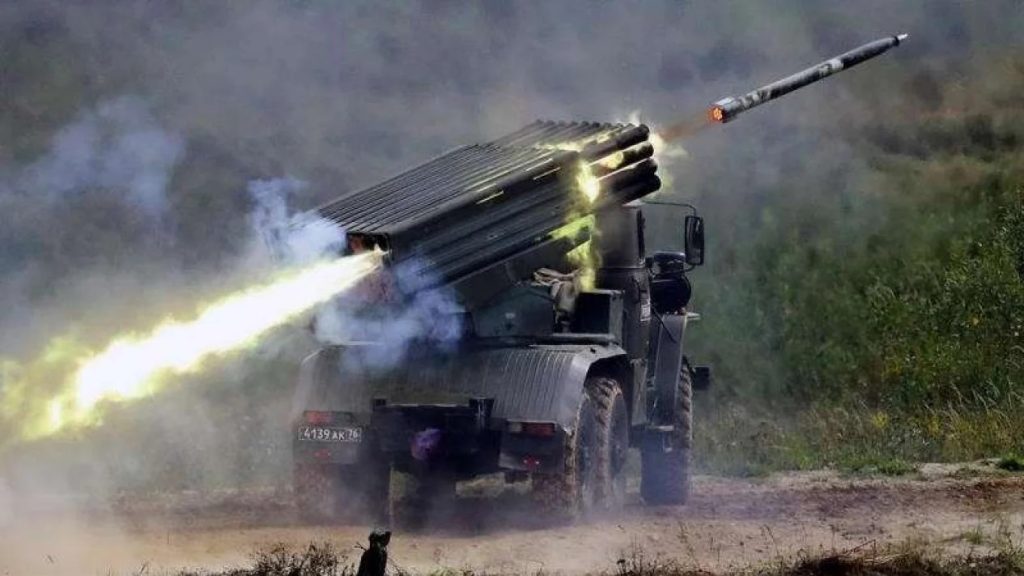When broken down by political party in the poll cited above, Republicans had less support for long-term aid for Ukraine.

How long will the United States support Ukraine with money and weapons?
The Pentagon is supplying advanced Patriot missile defense systems to Kyiv. That’s a sign of resolute support.
As long as Joe Biden is in the White House, expect the Americans to be stalwart defenders of Ukraine and a constant source for what Volodymyr Zelenskyy needs to prosecute the war.
However, now the Democrats lack a majority in the House of Representatives. The Republicans hold the power of the purse. Some GOP members are calling for money earmarked for Ukraine to instead go to fighting the border crisis. Others favor an audit or special inspector general to watch over alleged waste, fraud, and abuse inherent in Ukrainian aid.
The United States has sent military and financial aid to Ukraine worth $68 billion, and as of mid-November, the Biden administration has asked Congress for $37.7 billion more. That adds up to $105.5 billion. The total U. S. defense budget for FY23 is slated to be $857.9 billion of military spending. If you compare the two numbers, the ratio is about 12 percent – Ukraine aid compared to total defense spending. If the war continues, there is no end in sight for U.S. spending in Ukraine.
One way to look at the spending is the strategic outcome it has achieved. The United States has been able to weaken Russia’s military without firing a shot and without endangering Americans. One hundred and six billion dollars could be seen as a cheap way to eliminate a rival in the global power projection competition.
Others, especially more Conservative Republicans, do not see it that way. Fifty-seven House Republicans voted against a $40 billion aid package for Ukraine in May. Rep. Marjorie Taylor-Green of Georgia has been one of the loudest voices in opposition. “I voted ‘no’ from the beginning, and I’ll continue to vote ‘no,’” she said during a press conference in November. Taylor wants a full audit on Ukrainian spending.
Rep. Thomas Massie of Kentucky is against it. He votes in the negative on Ukrainian aid every chance he gets. Other nay-sayers include Florida Rep. Matt Gaetz, Georgia Rep. Andrew Clyde, and Alabama Rep. Barry Moore.
Senator Rand Paul of Kentucky wants an inspector general to oversee aid and is also skeptical that all the money going to Ukraine is being spent wisely.
Fox News TV host Tucker Carlson is against Ukrainian aid. Carlson believes all the money will lengthen the war. He asked this question in March: “Will it, for example, prolong the fighting in Ukraine at the expense of a vulnerable civilian population in Ukraine?”
If the $37.7 billion is approved in an Omnibus spending package before the holiday recess, and the grand total becomes $105.5 billion, how much more aid will be approved in 2023? Could the U. S. grant up to $200 billion with support of the majority of both political parties in Congress?
Most of the American people are still in favor of assisting Ukraine, according to at least one public opinion survey. In a December poll from the Chicago Council of Global Affairs, 65 percent of Americans support giving weapons to Ukraine and 66 percent support economic aid. But the poll doesn’t ask the limits of that support. Asking whether they would be in favor of spending $200 billion could see different answers in the poll.
When broken down by political party in the poll cited above, Republicans had less support for long-term aid. Thirty-three percent of GOP voters favored Ukraine aid indefinitely, while 61 percent of Democrats and 46 percent of Independents want prolonged U. S. support for Ukraine.
The war has almost lasted a year. When it hits that anniversary date in 2023, Americans may show their support is eroding. Another 12 months of fighting could see upwards of an additional $100 billion in aid. That may not keep lawmakers in support without some type of peace negotiations. The Biden administration does not appear to have a plan for when political support for continuous aid collapses. The United States also may not have a stomach for a blank check without some accounting measures or an inspector general in place. That may be a red line the American people are not willing to cross.
Expert Biography: Serving as 1945’s Defense and National Security Editor, Dr. Brent M. Eastwood is the author of Humans, Machines, and Data: Future Trends in Warfare. He is an Emerging Threats expert and former U. S. Army Infantry officer. You can follow him on Twitter @BMEastwood. He holds a Ph.D. in Political Science and Foreign Policy/ International Relations.






